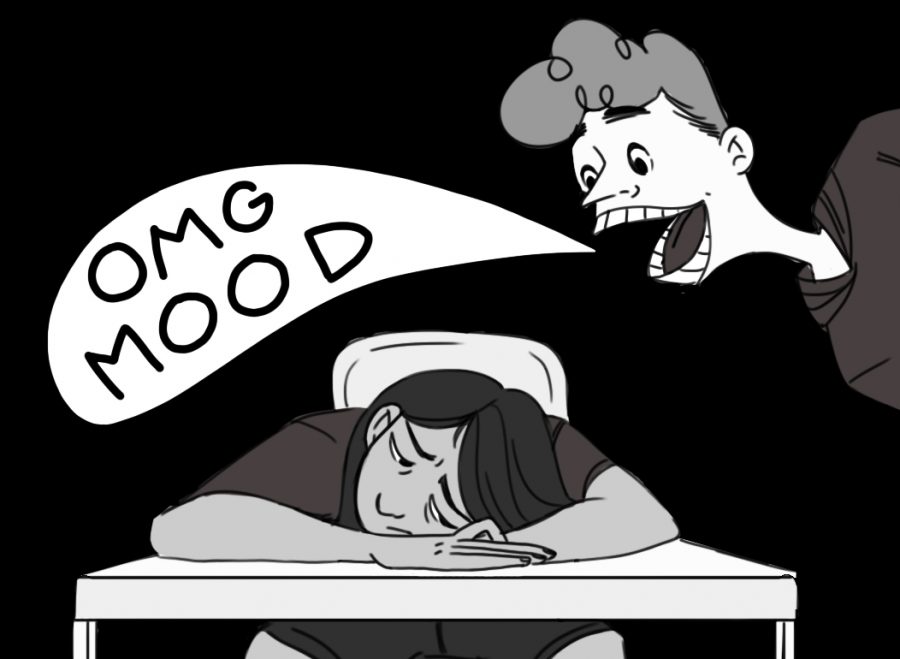Dear class of 2019,
December 16, 2018
According to Urban Dictionary, senioritis is defined as: Senioritis (noun). A crippling disease that strikes high school seniors. Symptoms include: laziness, an over-excessive wearing of track pants, old athletic shirts, sweatpants, athletic shorts and sweatshirts. Also features a lack of studying, repeated absences and a generally dismissive attitude. The only known cure is a phenomenon known as Graduation.
Dear Class of 2019,
We’re almost there. The moment that we’ve all been waiting for is so close that we can almost taste it. That’s right, I’m talking about second semester. With the year coming to a close, and with finals well on their way, I want to take the time to address something that has affected us all as a class: Senioritis. We’ve heard the jokes both from our peers and teachers about the urban legend of a disease. Some even like to make the joke that they’ve had senioritis since freshman year. The prospect of the physical inability to find motivation is easy to poke fun at, yet it seems to be a continuing unavoidable affliction for our generation nonetheless. Sometimes “senioritis symptoms” might be a shield for something more serious. And I don’t have an issue with that, because it’s perfectly normal to want to quit when you’re so close to the finish line. While the physical inability to find motivation can be a funny and relatable thing to joke about, these jokes may sometimes have deeper meaning that mask hidden issues some people might be experiencing.
The lack of motivation, excessive napping and disinterest in activities all might seem like typicalities for senior year, but we shouldn’t always just write them off as such. Over the past few months, it seems like every conversation I have with my fellow seniors circle back to the same talking points; we’re all tired, unmotivated and considering dropping out. Because we’re all in the same boat, just trying to keep afloat until graduation, it’s easy to jump on board by saying “mood” and “same.”
If they persist, these feelings should be a cause for concern. I’ve had my friends talk about getting random and sudden mood changes. Eventually, this lead to them talking about feeling “empty” and how everything they’ve worked for doesn’t even feel worth it at this point. To my friends and perhaps to many of you, this just seems like senioritis—you’re sad, unmotivated and you just want senior year to end.
But, as someone who has experienced difficulty with their mental health, a lot of these changes sound more like symptoms of depression than quirky, self-diagnosable, fake, Urban Dictionary diseases to me. So when I hear about my friends’ crippling mental health, it waves a red flag in the back of my mind. I can’t tell if it’s the senioritis getting to everyone, or if they’re hiding behind jokes to mask what seems to me like the early stages of a mental health issue.
It’s painfully easy to brush off these symptoms given the area we live in and the standards that we are held to. After all, you hear that kid in your math class talk about how they’re overwhelmed with stress, but they’re still managing an A in the class.
Am I overreacting to this whole situation? Maybe this is all just the senioritis that’s making people joke about suicide. But what if these jokes are just a cry for help—what if my friends are actually spiraling into depression and I’m not doing anything about it? Sure, I can comfort them and offer advice, but how can I help those around me if I can’t even help myself?
Senioritis is a very real feeling, but I believe we’ve using the word sloppily. It’s important to avoid jokes about suicide, especially when there’s people out there who have to deal with these feelings on a daily basis. People who don’t have a definitive cure for what they feel. But I also believe there are people who use senioritis to mask real symptoms of mental illness, and while self-diagnosing isn’t okay, it is important to seek help if you believe there’s more going on.
Senioritis isn’t a disease. Depression is. Senioritis has a cure and it’s graduation. If you’re worried that this might be something more, reach out to someone.





